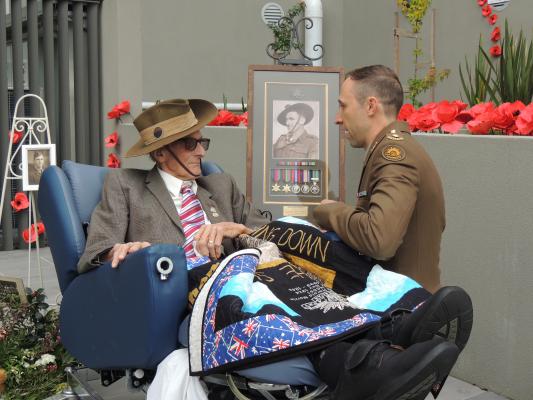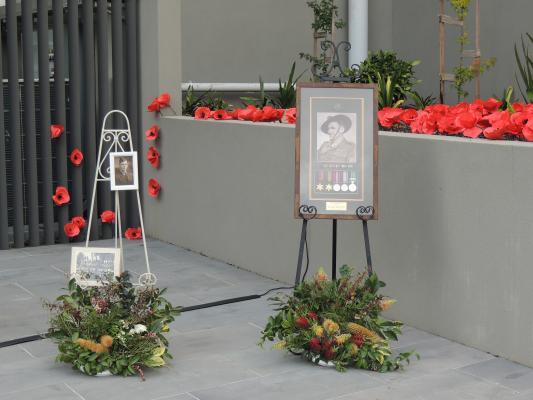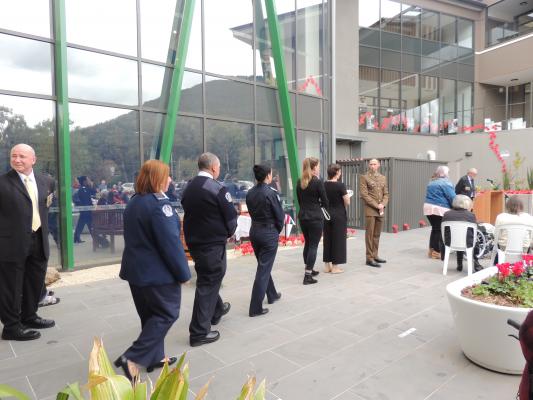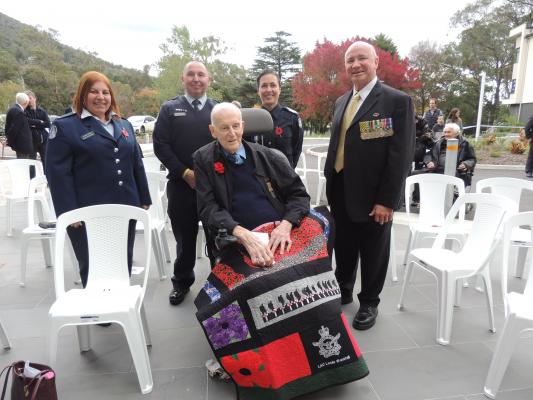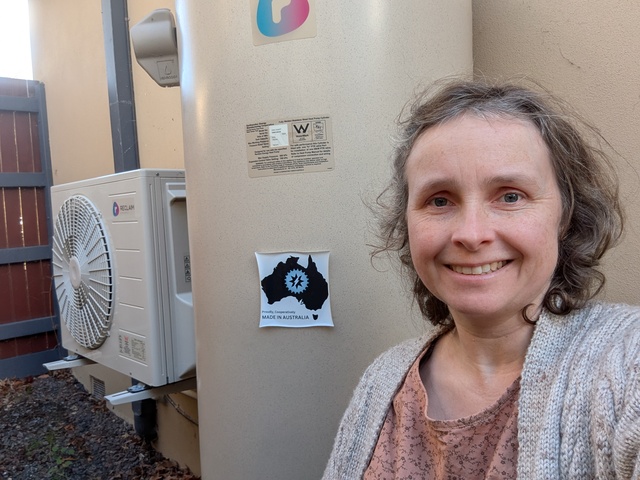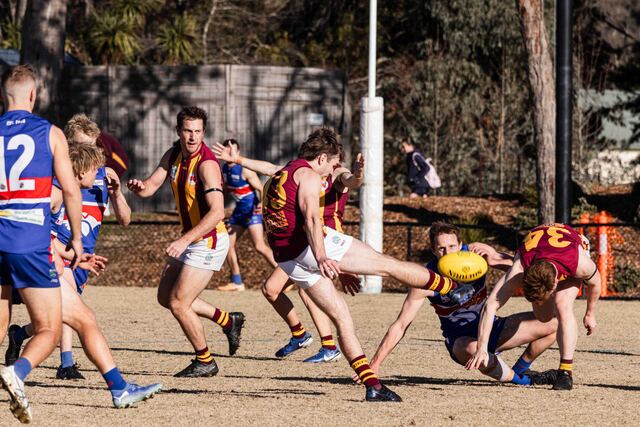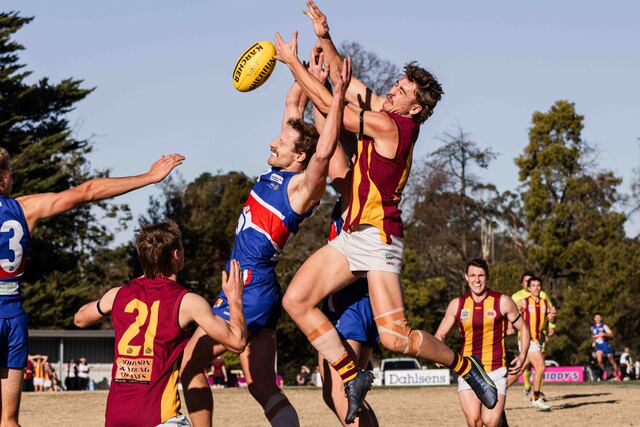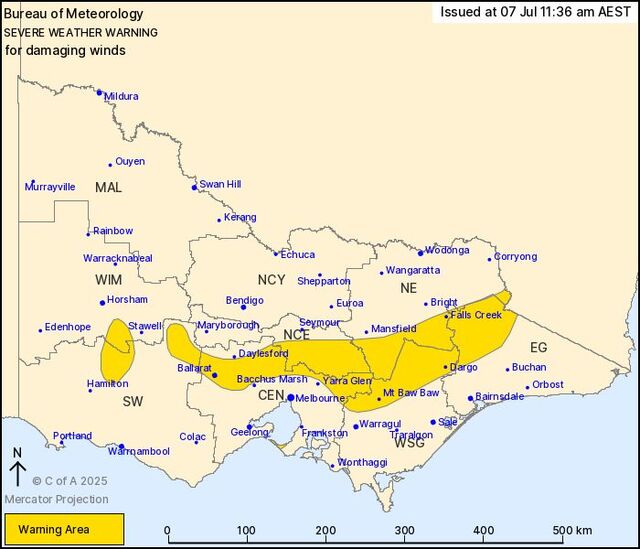It might have been wishful thinking when Bill Morris, 96, told his nurse he wanted to attend one last Anzac Day march but little did he know it could all be possible.
On a day like none other, Mercy Place Montrose staff, residents, family and strangers joined to give Mr Morris his final wish, by bringing Anzac Day to him.
What was meant to be an intimate service with just Mr Morris’ family, turned into a heartwarming ceremony of people from all over.
Lifestyle coordinator at Mercy Place, Dee Halligan said she looked into getting Mr Morris into the city but it wasn’t going to be possible.
“Physically and with his medical condition, it just was not possible to get him into the city. So I thought, well, I’ll bring Anzac to him,” she said.
“He’ll be lucky if he sees another Anzac Day.”
After getting in contact with the Department of Veteran’s Affairs, Ms Halligan said the process was not easy but everything seemed to fall into place.
200 hand-made poppies turned the courtyard into a sea of red and an Australian flag raised to half mast stood in the centre.
The feeling of community spirit has never been more poignant than it was standing together as one.
Residents who were able, filed out and took their place among the crowd.
Others watched from the glass windows above.
Chairs donated by Bayswater Bunnings lined the courtyard.
A guard of honour was formed and entered Mr Morris, championing his Australian Army slouch hat.
Because of the significance of Mr Morris’ efforts during the war, Canberra army major Gary Bergman and Melbourne major Sean Hobson were both in attendance.
Major Hobson joined volunteers from Aussie Hero Quilts to present Mr Morris with a custom made quilt depicting his history in the war.
William Harold Morris, born 12 November 1924, joined the Australian Infantry Battalion in 1942.
In 1944 he was deployed from Brisbane to Torokina, the Australian base on the Island of Bougainville, Papua New Guinea.
Mr Morris is one of Australia’s last remaining ‘Island Hoppers’, who helped retrieve control of Japanese fortified islands across the Pacific during World War II.
Lasting up until 15 August 1945, Australian troops were subjected to long range Japanese attacks and booby traps, as well as shelling from artillery fire.
In a poetic moment while the Australian anthem played, the sound of a kookaburra singing in the distance of the Mount Dandenong’s, saluted Mr Morris and his fellow veterans in attendance.
Service Manager for Mercy Place June Murrowood said she didn’t realise how many residents have had a war career until now but even if they haven’t served, Anzac Day means so much.
“I think it is irrespective of whether they have served or have not, it’s such an important thing for our residents and their families,” she said.
“We’ve got families we didn’t even know were serving members of the forces and they’ve turned up today with their medals and they’ve come to see their loved one and it’s brought all our people together.”
Although poor health may have prevented him from attending Melbourne’s Anzac Day march, his mind was as strong as anything.
Humbled by the occasion that commemorated his service, Mr Morris was very overwhelmed.
“It’s very awe inspiring but it’s very hard to come to terms with it, really it is. All these people that think you’re somebody special when there were millions, it just so happens I’m still alive, they’ve all gone, that’s just the difference,” Mr Morris said.
“Just a couple of very close friends you lose, different blokes you lose, friends that you’ve been on a boozy run with, misbehaved together, but that’s the way it is.”
And although still grieving the loss of many of his mates who died during the war and after, his memories of all the good times still flood him emotion.
Reminiscing of the days at war, he said they always got up to mischief and loved attending all the picture shows when the war ended.
“And it was good, we enjoyed ourselves at the end of the war, a few funny things happened,” he said.
One of those being a close encounter with a crocodile.
“The Americans built a swimming pool, diving boards, floats, the lot. Of course we took over from the americans. We were told about crocodiles and I happened to say to one of [the Americans], ‘Did you get all the crocodiles out? Yeah they’re gone’,” Mr Morris said.
As he swam and stood on the banks, he felt a number of pointy knobs along the bottom of his foot, just like a crocodile’s back.
“The war had ended, I got out and I was reading an article, a native had been swimming in the river in New Guinea and saw a croc on the ground. He went and got his mates and decided to tie it up and catch it, they got it half way tied up and it came to life,” he said.
“And I thought to myself ‘I might have been standing on a crocodile’, I don’t know, I’ll never know, I don’t want to know,” Mr Morris said with a wide grin appearing on his face.
Out of all the bad memories he still remembers the good ones, to which he said “of course.”

